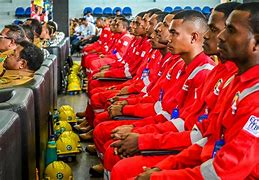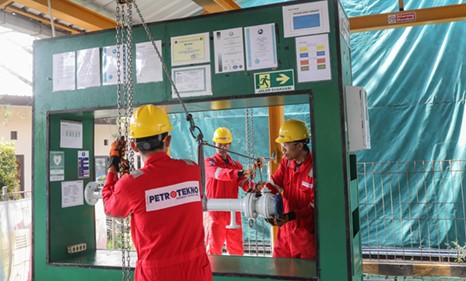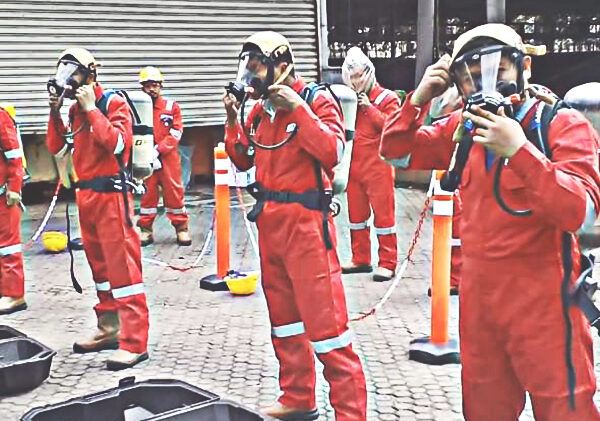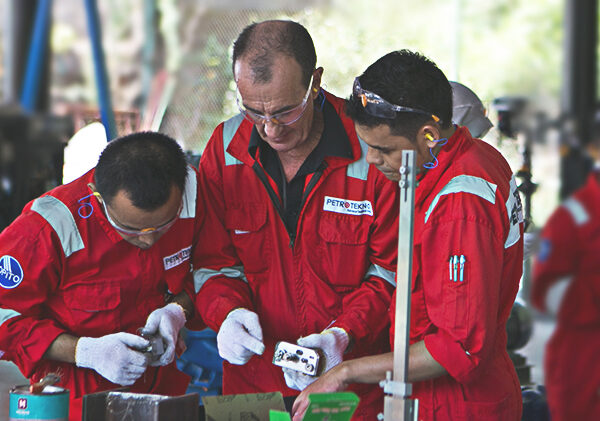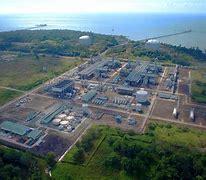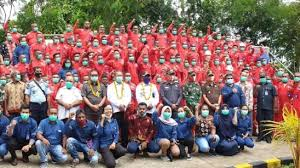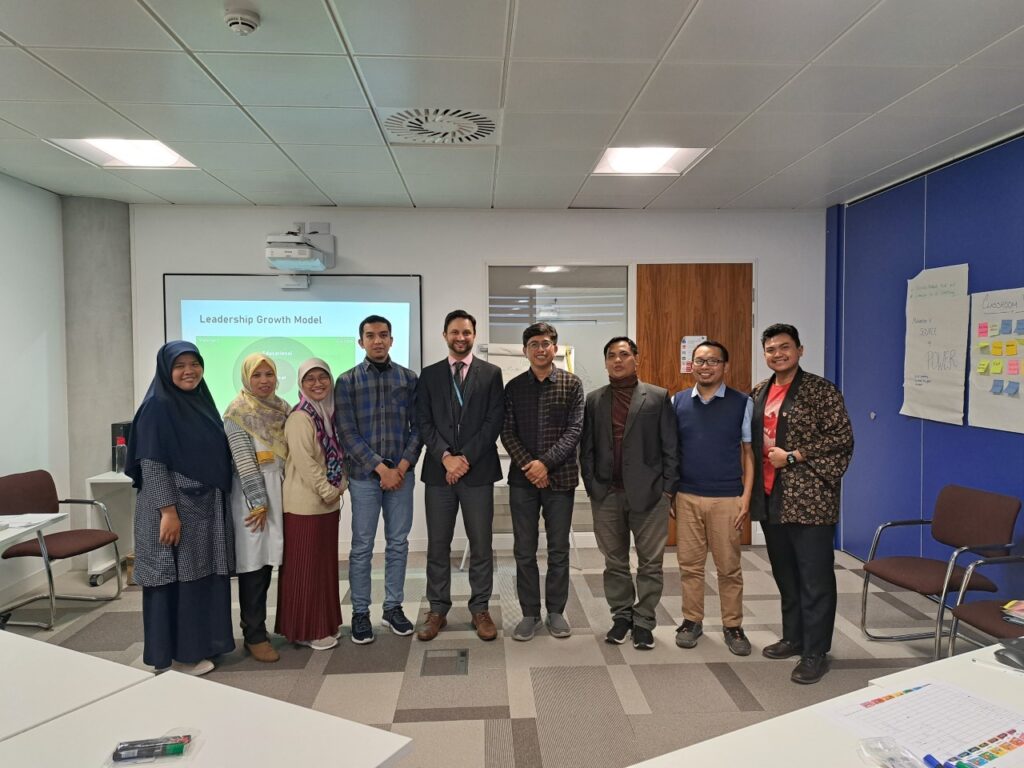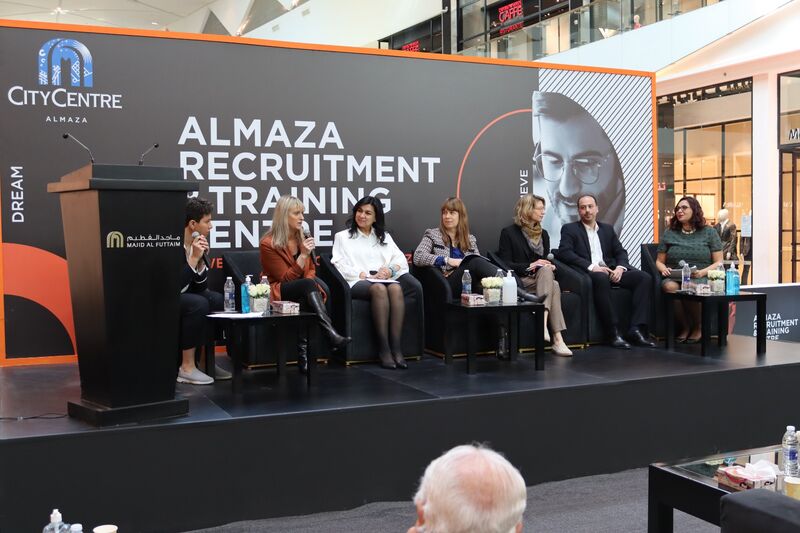Indonesia: ECITB supports BP Tangguh LNG Project for Petrotekno
Summary
Indonesia: Following the discovery of six gas fields in the 1990s, the BP led Tangguh LNG Project in Bintuni Bay, Papua Barat, started in 2009 having been sanctioned by the Indonesian Government in 2005. It currently employs 10,000 workers of whom 50% are locally sourced. In 2017, the Indonesian Government ruled that by 2029, 85% of workers must be from the local population.
To support that, the Indonesian Ministry for Education and National Board of Education Standards (BSNP), Petrotekno as the Training Provider and the ECITB worked together to set training and testing standards to create a “one-stop” package where young people in the region could be trained at newly created training facilities in technical disciplines, including Health and Safety, to enable them to be employed in technical roles on the project. So far 700 have graduated from these 4-6 month courses since the scheme began in 2018.
Whilst there are many support roles across the six sites that only require non-skilled and semi-skilled workers, the project also has very large numbers of technical roles that need to be filled.
BP has successfully been running its own Tannguh Technician Apprenticeship Scheme but as a four year Diploma Course it only delivers 112 highly trained technicians a year when the Project requires far larger numbers of trained personnel than that to achieve the 85% target set by the Government.
A highly regarded Indonesian based Training Provider, Petrotekno, saw this opportunity and as a newly licenced Training Provider with the ECITB, asked the ECITB and the Indonesian Government for assistance.
The main challenges were to: identify the skills gap; devise an appropriate training programme, governed by the standards required that met the Project’s needs; provide suitable facilities for the training to take place; resource the training with enough trainers, administrative staff and equipment; and then market the offer and recruit trainees.
In meetings where all stakeholders took part, the ECITB and Petrotekno listened to BP regarding the skills they required for future employees, whilst simultaneously establishing the educational standard level of the target demographic and which section of the population should be targeted as potential trainees. Local Government knowledge and priorities were all part of the discussions, which ultimately led to a strategy being formed that took all these and many more economic, social and political factors into account.
The ECITB was a key part of the discussions and using its decades of experience elsewhere in the world within the Oil and Gas Industry, was able to define the skills requirement within the strategy and work with Petrotekno to create the right training standards (in agreement with the BSNP), course content and qualifications, as well as issuing the appropriate licences to individual trainers to enable delivery of such training.
Petrotekno, realising it would need at least three new facilities across the region, worked with the Government of Indonesia to secure grants, planning permissions and funding etc. to get these set up; the ECITB then approved these facilities as meeting the requirements to deliver its globally recognised technical training standards.
Within less than a year the first students enrolled on the first Petrotekno Courses across three training facilities: Puncak, Sunter and Bintuni. In 4-6 month long residential courses (6 days a week), 100 x 16-21 year olds at a time are trained in Health and Safety, Pipefittings, Scaffolding, Rigging, Welding and Mechanical Fitting/Maintenance.
In addition to vocational training, they are taught English and basic life skills such as organisation, budgeting, communication, time-management, decision making etc. The nature of the training and the starting level of the candidates mean that traditional training delivery has been the only viable option; e-learning or a blended learning approach would not work and the residential part means that trainees do not have to spend money travelling to and from the course and also provides the best environment for the life skills elements to be taught.
The merit of this approach is borne out by a 98% pass rate being achieved so far with 100% of those passing (before 2020) being offered employment on the Tannguh Project (a total of more than 700 have graduated to date). The Minister for Education has personally attended, spoken and presented certificates to trainees at several of the graduation ceremonies.
These qualifications are industry standards and mean that individuals are able to utilise them in other parts of the world in future years too.
So far the courses run have been extremely well received with more than 700 graduates in three years. This general upskilling of young members of the local population has changed lives for the better and there are films on YouTube of this specific project that illustrate just that. The area of Papua Barat has long been impoverished and subject to significant political turmoil for decades. Once the Indonesian Government had overall control of this semi-autonomous region they have been able to influence its regeneration.
This LNG project is expected to run for the next 30 years as a minimum and will provide a long term, stable future, for the people of the area. Working together with a local and highly professional Training Provider, the ECITB and Government Agencies have been able to make a real difference and are helping the Project to reach the Government’s ambitious target for workforce composition.
Benefits to the UK include revenue for the ECITB, which directly feeds into grants paid to the UK’s Engineering Construction Industry employers but perhaps more importantly, shows the UK as a genuine force for good in the region, able to work collaboratively with public and private agencies, profit and not for profit organisations, whilst maintaining the highest standards expected of UK plc in all respects.
Check out this individual’s story (2 mins):
https://www.youtube.com/watch?v=lHN0DrLuBtU
View the graduation Ceremony local TV news story:







